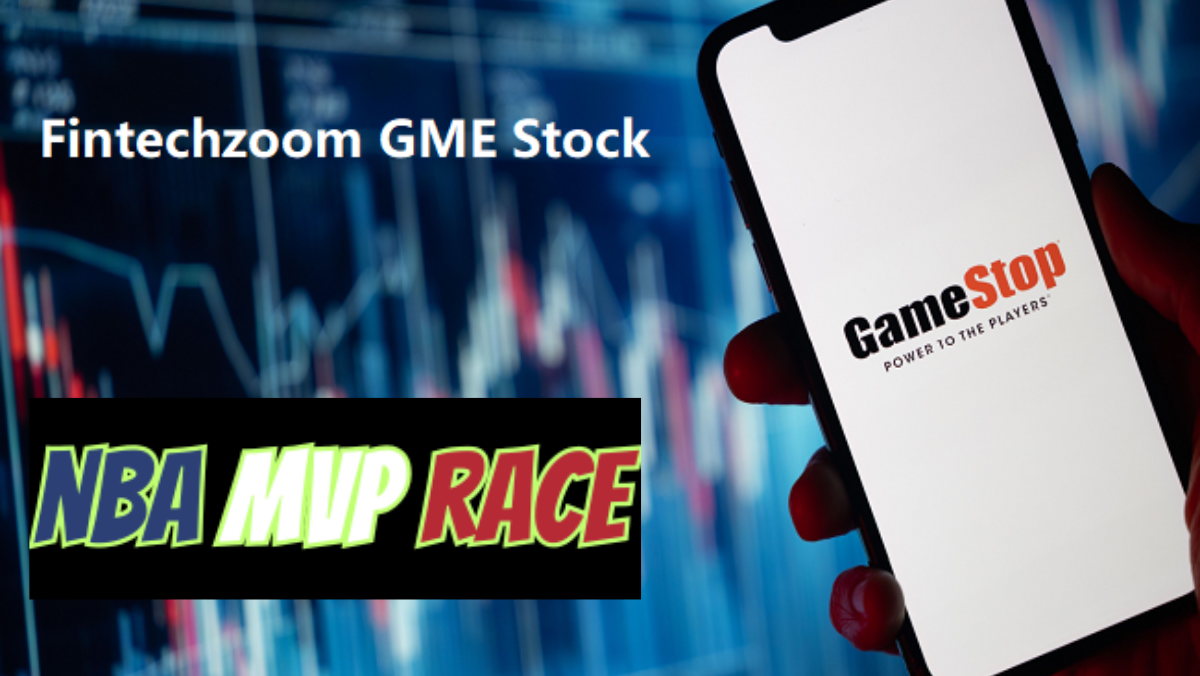Introduction
GameStop (NYSE: GME) has been at the center of one of the most remarkable stock market stories in history. From being a struggling brick-and-mortar video game retailer to becoming a symbol of retail investor power, GME stock has captured the attention of traders, analysts, and financial experts worldwide.
One of the key platforms providing in-depth financial news and analysis on GME stock is FintechZoom. As a trusted financial news outlet, FintechZoom offers insights into GameStop’s stock movements, market trends, and predictions for the future. But what makes GME stock so unique? How has it performed post-short squeeze, and what do experts predict for its future?
In this article, we will explore FintechZoom’s analysis of GME stock, examine the factors influencing its price, and discuss whether GameStop is a viable investment in today’s market. Whether you’re a seasoned investor or just curious about meme stocks, this in-depth guide will provide everything you need to know.
Understanding GameStop (GME) Stock
1.1 The History and Evolution of GameStop
GameStop was founded in 1984 and quickly became one of the largest video game retailers in the world. At its peak, it had thousands of stores worldwide, catering to gamers who preferred physical copies of video games and gaming consoles. However, with the rise of digital downloads, streaming services, and competition from platforms like Steam and Xbox Game Pass, GameStop struggled to keep up.
The company’s traditional business model began to decline as customers shifted towards online gaming purchases. With declining sales and an outdated retail strategy, GameStop found itself in financial trouble by the late 2010s. Many investors and analysts predicted that the company would not survive in the digital age.
1.2 The 2021 GameStop Short Squeeze Phenomenon
In early 2021, GameStop’s stock price skyrocketed in what is now known as one of the most famous short squeezes in history. The event was fueled by retail investors from the Reddit forum WallStreetBets, who noticed that hedge funds had heavily shorted GME stock. By collectively buying up shares, these investors forced hedge funds to cover their short positions, leading to a rapid price surge.
At one point, GME stock soared from under $20 to nearly $500 per share, causing billions in losses for hedge funds that had bet against the company. This event highlighted the power of retail investors and disrupted traditional market dynamics. However, the extreme volatility also led to regulatory scrutiny, trading restrictions, and debates over stock market manipulation.
1.3 GME Stock Performance Post-Squeeze
Following the short squeeze, GameStop’s stock price experienced significant fluctuations. Although it never returned to its peak of nearly $500 per share, it remained far above its pre-squeeze levels. The company took advantage of the momentum by restructuring its leadership team, with activist investor Ryan Cohen stepping in to drive transformation.
Despite GameStop’s efforts to modernize its business, many analysts remain skeptical about its long-term financial stability. The company has experimented with NFTs, e-commerce, and blockchain gaming, but whether these initiatives will ensure sustained growth remains uncertain.
FintechZoom’s Coverage on GME Stock
2.1 How FintechZoom Analyzes GME Stock Trends
FintechZoom is a well-known financial news platform that covers stocks, cryptocurrencies, and market trends. Its coverage of GME stock includes real-time updates, expert opinions, and technical analysis to help investors make informed decisions.
By leveraging financial metrics such as price movements, trading volumes, RSI (Relative Strength Index), and earnings reports, FintechZoom provides a comprehensive view of GME’s performance. It also examines external factors like social media trends and retail investor sentiment, which play a crucial role in GME’s stock movements.
2.2 Key Insights from FintechZoom’s Reports on GME
According to FintechZoom, GME remains one of the most volatile stocks in the market. The platform highlights how trading volume spikes, meme stock trends, and institutional interest continue to impact its valuation.
One of the major takeaways from FintechZoom’s analysis is that GME’s value is still heavily influenced by social media hype rather than fundamental business performance. While GameStop has taken steps to modernize its operations, its stock price movements are often disconnected from traditional valuation metrics.
2.3 Expert Opinions and Analyst Forecasts on GME
Wall Street analysts remain divided on GME’s future. Some experts believe that GameStop’s shift towards e-commerce and digital assets could lead to growth, while others argue that its core business remains weak.
FintechZoom’s reports often cite both bullish and bearish opinions, allowing investors to weigh different perspectives before making investment decisions. The key takeaway is that GME is still a high-risk, high-reward stock, making it crucial for investors to stay updated on market trends.
Factors Influencing GME Stock Price
3.1 Retail Investor Sentiment and Social Media Influence
One of the biggest drivers of GME’s stock price is retail investor sentiment. Unlike traditional stocks, GME’s movements are often dictated by online communities on Reddit, Twitter, and YouTube.
3.2 GameStop’s Business Strategy and Transformation
GameStop’s transformation plan, led by Ryan Cohen, focuses on e-commerce, NFT ventures, and blockchain gaming. However, these initiatives are still in their early stages, and their long-term impact on the company’s profitability remains uncertain.
3.3 Market Trends and Economic Factors
Economic conditions such as inflation, interest rates, and consumer spending habits also play a role in GME’s performance. In addition, hedge funds and institutional investors continue to short the stock, adding to its volatility.
Future Outlook for GME Stock
4.1 Short-Term Predictions: Where is GME Headed Next?
In the short term, GME is likely to remain volatile. Key factors to watch include quarterly earnings reports, social media trends, and institutional trading activities.
4.2 Long-Term Growth Potential for GameStop
While GameStop’s leadership is making efforts to reinvent the company, long-term success will depend on its ability to compete in the digital gaming market.
4.3 Should You Invest in GME Stock?
Investing in GME is risky, but it can be rewarding for those who understand its market dynamics. FintechZoom suggests that investors should diversify their portfolios and not rely solely on meme stocks for long-term growth.
Conclusion
GameStop’s stock remains one of the most talked-about assets in the financial world. With FintechZoom providing detailed insights into its trends, investors can make more informed decisions. However, given its volatility, GME remains a high-risk investment that requires careful consideration.
Also Read: isotonix lawsuit




